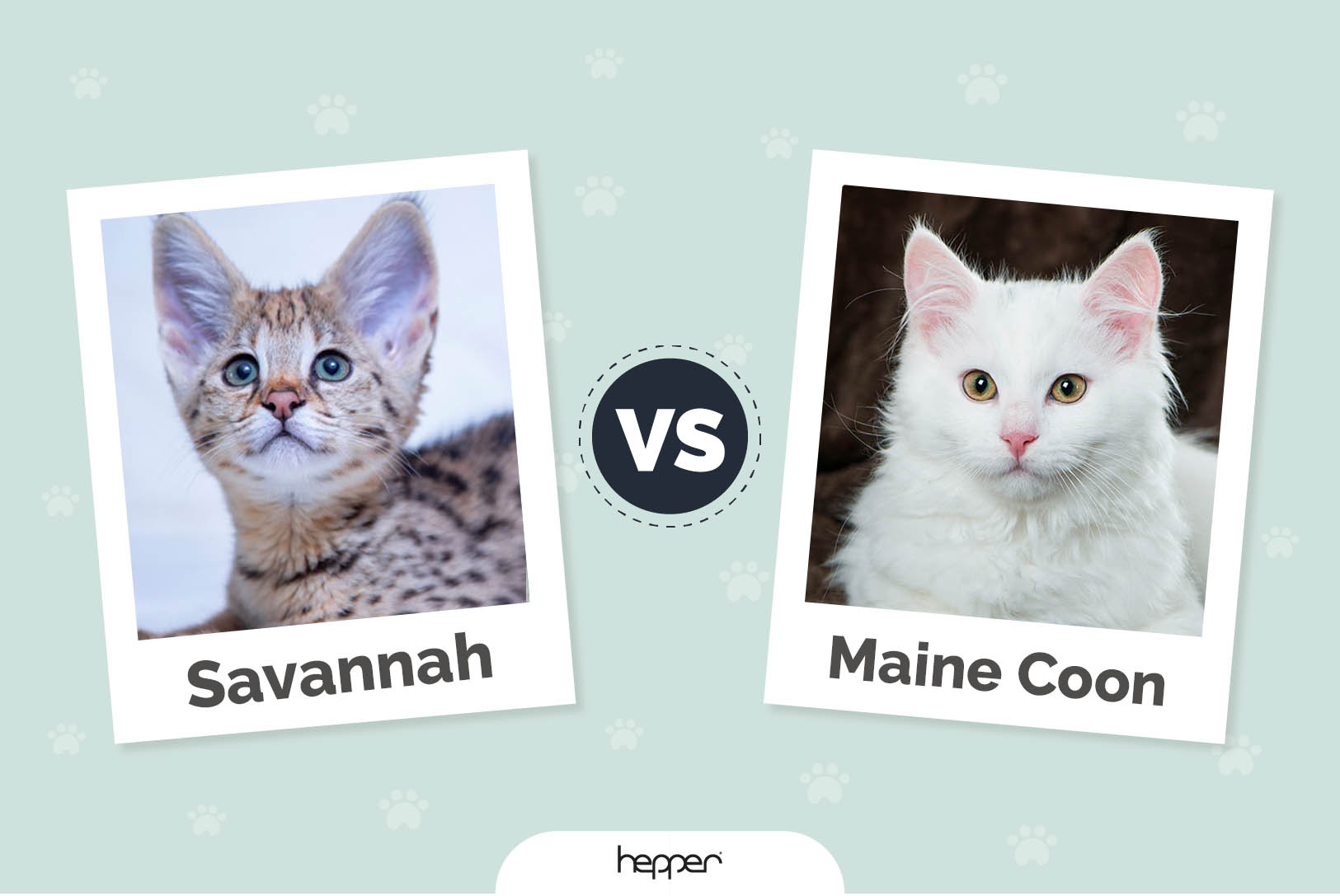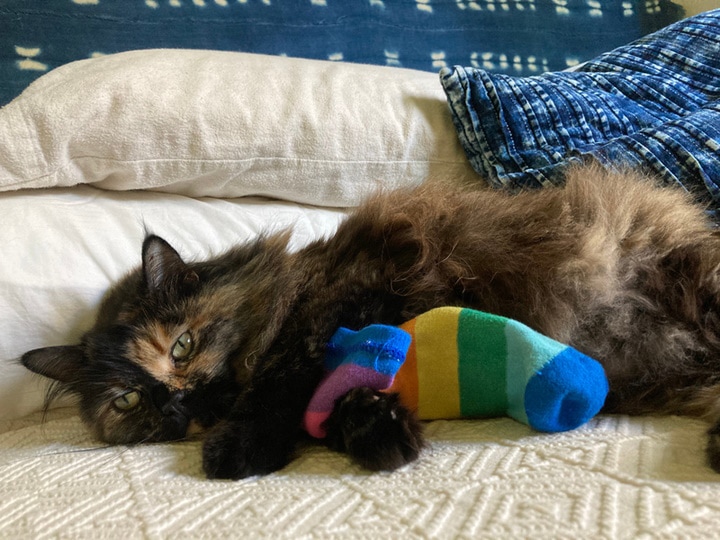3 Common Abyssinian Cat Health Problems (Vet-Reviewed)
Updated on
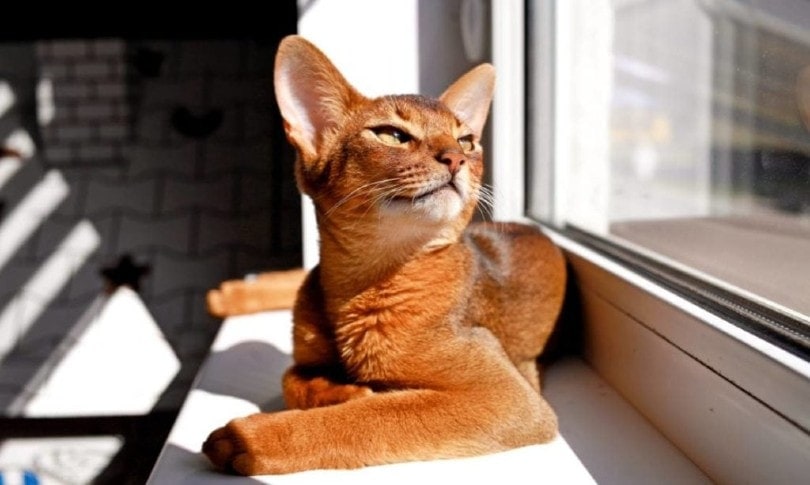
Like all purebreds, Abyssinian cats are prone to a few different health problems. Luckily, they do seem to be healthier than most other felines out there, but that doesn’t mean that they are completely healthy.
Abyssinian cats are prone to the usual cat illnesses and disorders. For instance, they are prone to obesity if they are incorrectly fed and exercised, which can lead to other disorders. However, they are also specifically prone to a few genetic conditions, including early-onset RCD and late-onset rod-cone degeneration. Both of these conditions are genetic, though they are inherited differently.
On top of these conditions, Abyssinian cats may also be prone to a few more. We’ll take a quick look at a few conditions that these cats are prone to.
The 3 Most Common Abyssinian Cat Health Problems:
1. Progressive Retinal Degeneration
This condition occurs when the retina of a cat slowly breaks down. Eventually, the cat will become blind, as the retina is required for them to see. Sadly, this condition is genetic and often not treatable. It affects quite a few different breeds of cats, so the Abyssinian is not alone.
This condition can occur in the early or later life of a cat. However, for Abyssinians, it usually occurs earlier. It may even affect kittens, though this is rare. Usually, it doesn’t strike until closer to the age of 3 years.
In many cases, the cat adapts very well to the declining eyesight at first. Owners often do not notice symptoms until their cat is completely blind and begins to run into things after furniture is moved. Cats may become more cautious of their surroundings, but it is often hard to tell what is partial blindness and what is just a cat being a cat.
Because this disease is genetic, testing adult cats before breeding can prevent it from being passed down. Therefore, be sure you purchase your kitten from a breeder who has two healthy cats. Of course, the cats should not be blind themselves. It’s also nice if none of their parents are reported to have the disease.
Sadly, because this condition may not strike until as late as 5 years, cats may be bred before they develop blindness. That is why it is vital to go back a few generations to check on the health of the parents.
There is no available cure for this condition. There is also no way to slow down its progression, except through careful breeding.
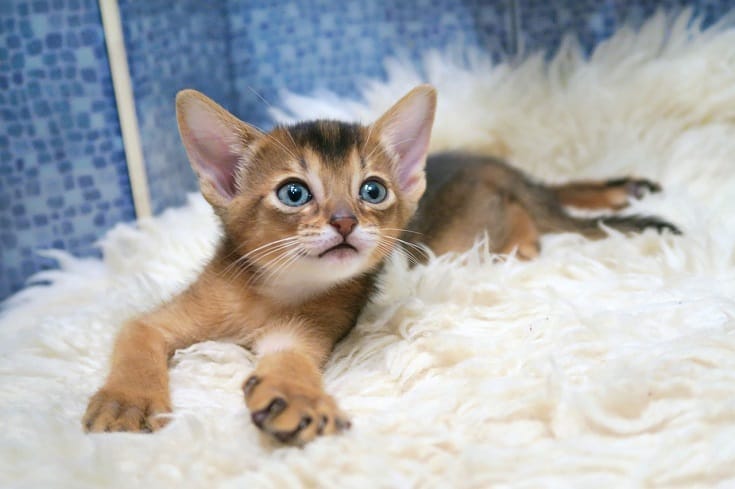
2. Rod-Cone Degeneration
This disease is another heritable disorder that may cause cats to go blind. However, unlike the previous condition, this one is typically only found in Abyssinian cats. It affects the development of the photoreceptors, which are necessary for sight.
Usually, the cat will develop normally until the age of 2 years or so. After that, they will slowly start to go blind, which usually takes another 2–4 years. The rods are affected first, which changes a cat’s ability to perceive light and shadow. However, cones (which perceive color) are not affected until later.
The disease progresses very slowly and is very similar to other hereditary eye conditions. There is no cure for it or a way to slow it down. Eventually, the cat will go blind. Luckily, most cats adapt to blindness very well and there is no pain associated with the condition. Most cats live full lives—even if they cannot see.
Many owners miss the fact that their cats are going blind since felines are very adaptable to little eyesight. Cats have other senses that help them get around, so they do not need to rely heavily on their eyesight.
However, when the cat is completely blind, they may not adapt quite as well. For instance, if the furniture in the house moves around, they may find themselves unable to find their way around. They may have a hard time finding the food bowl after it is moved only a foot away, for instance. In this way, it is easy to miss the progression until the cat is already blind.
3. Obesity
Like many domestic cats, Abyssinian cats are prone to obesity. In fact, about half of all cats are heavier than their ideal weight—Abyssinians included. Sadly, obesity is linked to a variety of different conditions, and it is vital that you keep your cat at a healthy weight if you want them to live a long and healthy life.
For instance, cats that are obese are more likely to die early than their lean counterparts. The average cat’s lifespan is nearly cut in half by being obese in some cases. It isn’t necessarily the obesity that kills the cat, though. Instead, it is the illnesses that come with the extra fat.
Fat is not simply something cats carry around. Instead, it is “biologically active,” which means that it creates chemicals within the body. It is alive. Specifically, fat tissue secretes hormones that can throw off a cat’s hormonal balance and leads to more oxidative stress. Both of these factors lead to disease. Obesity is similar to a chronic inflammatory condition in this way.
The easiest way to keep your cat at a healthy weight is to keep them active and measure their feedings. Free-feeding often leads to overfeeding. When they are in a domestic setting, cats are using fewer calories than if they were in the wild. However, they may still eat the same amount if allowed, which will lead to excessive weight gain.
You should take your cat to the vet regularly for weight checks to ensure that they are not becoming overweight. Even an extra pound or two can be serious for a cat. You can also keep an eye on your cat’s body condition, which allows you to estimate whether or not they are obese. However, weighing your cat is the only way to know for sure.
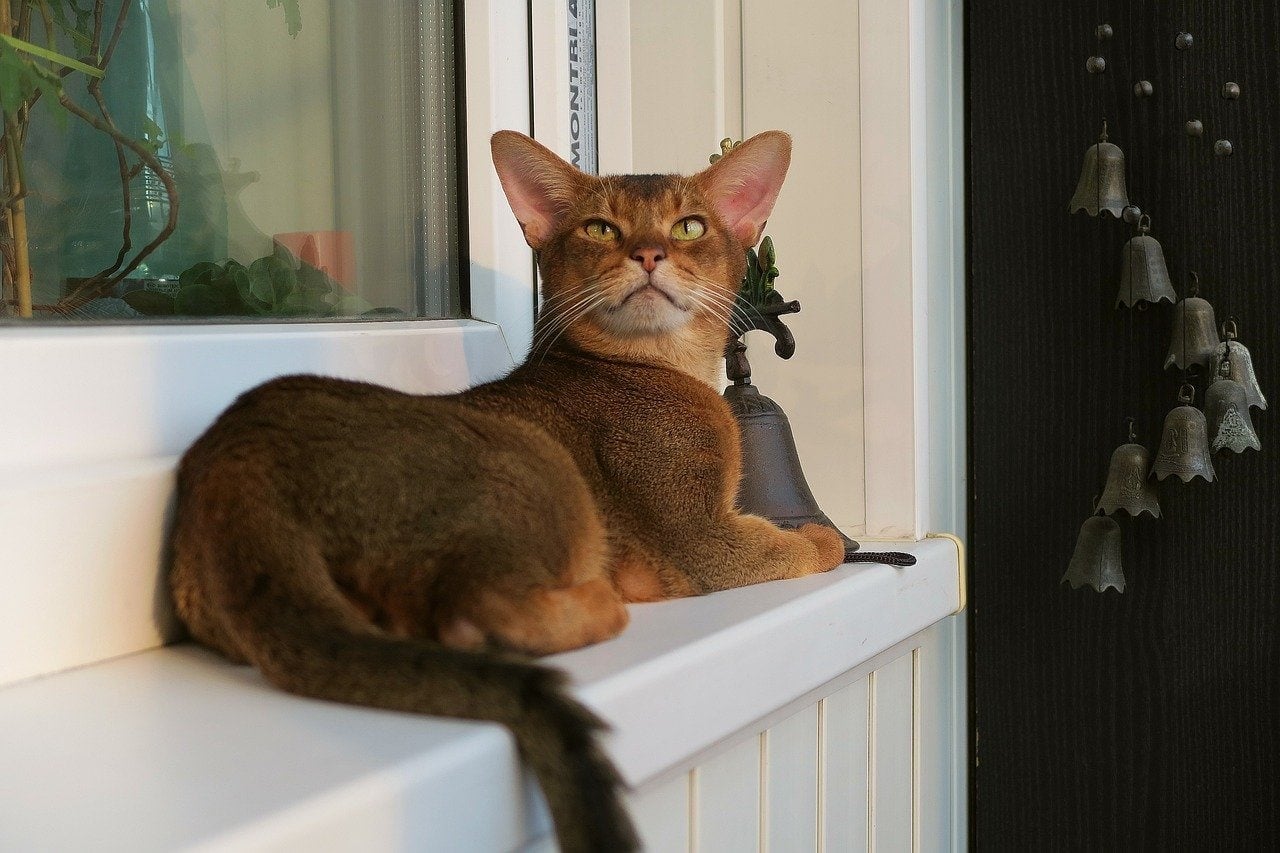
Final Thoughts
Abyssinian cats are known for being pretty healthy. They are not prone to some common health conditions that affect other cats. For instance, their immune systems and cardiovascular systems are pretty healthy, but they are prone to some genetic eye conditions that lead to blindness.
Luckily, these can be tested for. A quality breeder will always perform the proper health checks and genetic testing before breeding their felines, which helps prevent these conditions from being passed on. For this reason, you should only choose breeders that perform these tests and provide health guarantees. Otherwise, you may inadvertently support furthering these conditions in the population.
These cats are also prone to obesity, which is common in cat breeds. Of course, this condition is completely preventable. Luckily, this mostly involves supporting your cat’s healthy lifestyle. You should provide your cat with plenty of opportunities to exercise, feed them the appropriate amount of food, and keep track of their weight.
Featured Image Credit: Irina Grib, Shutterstock


